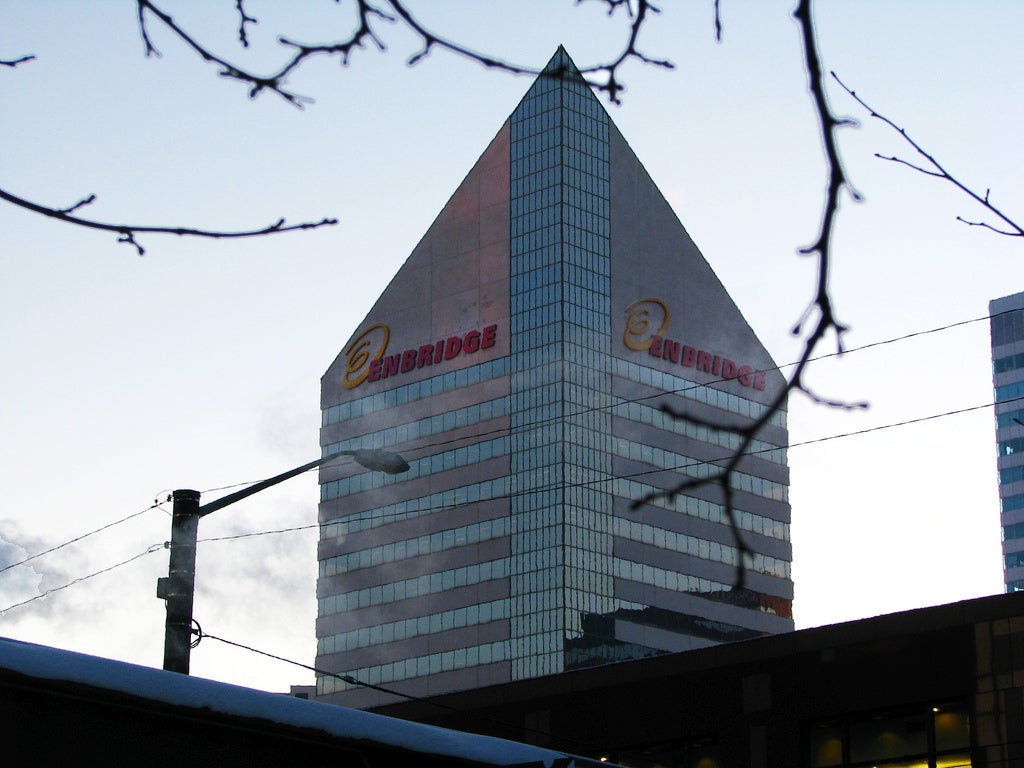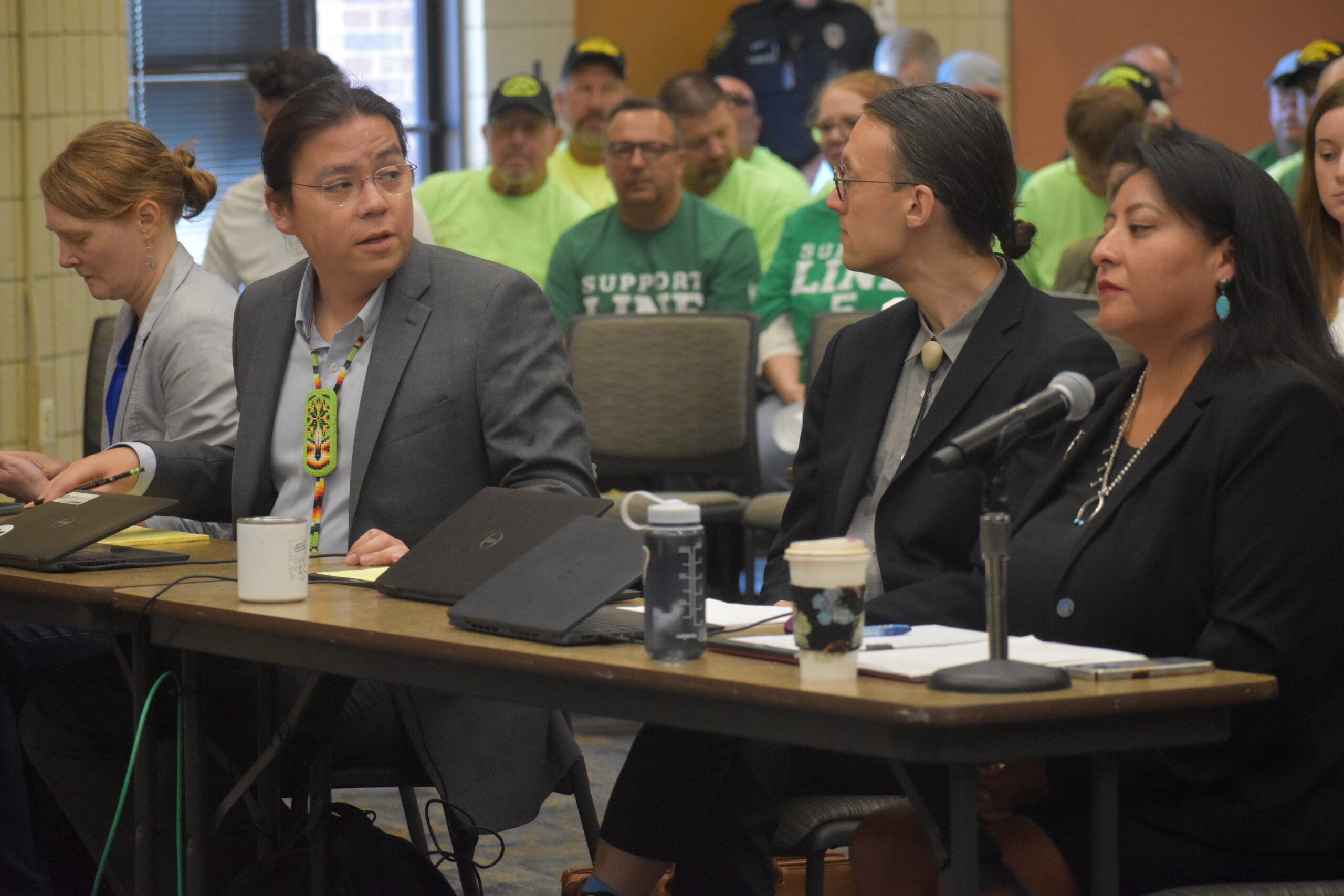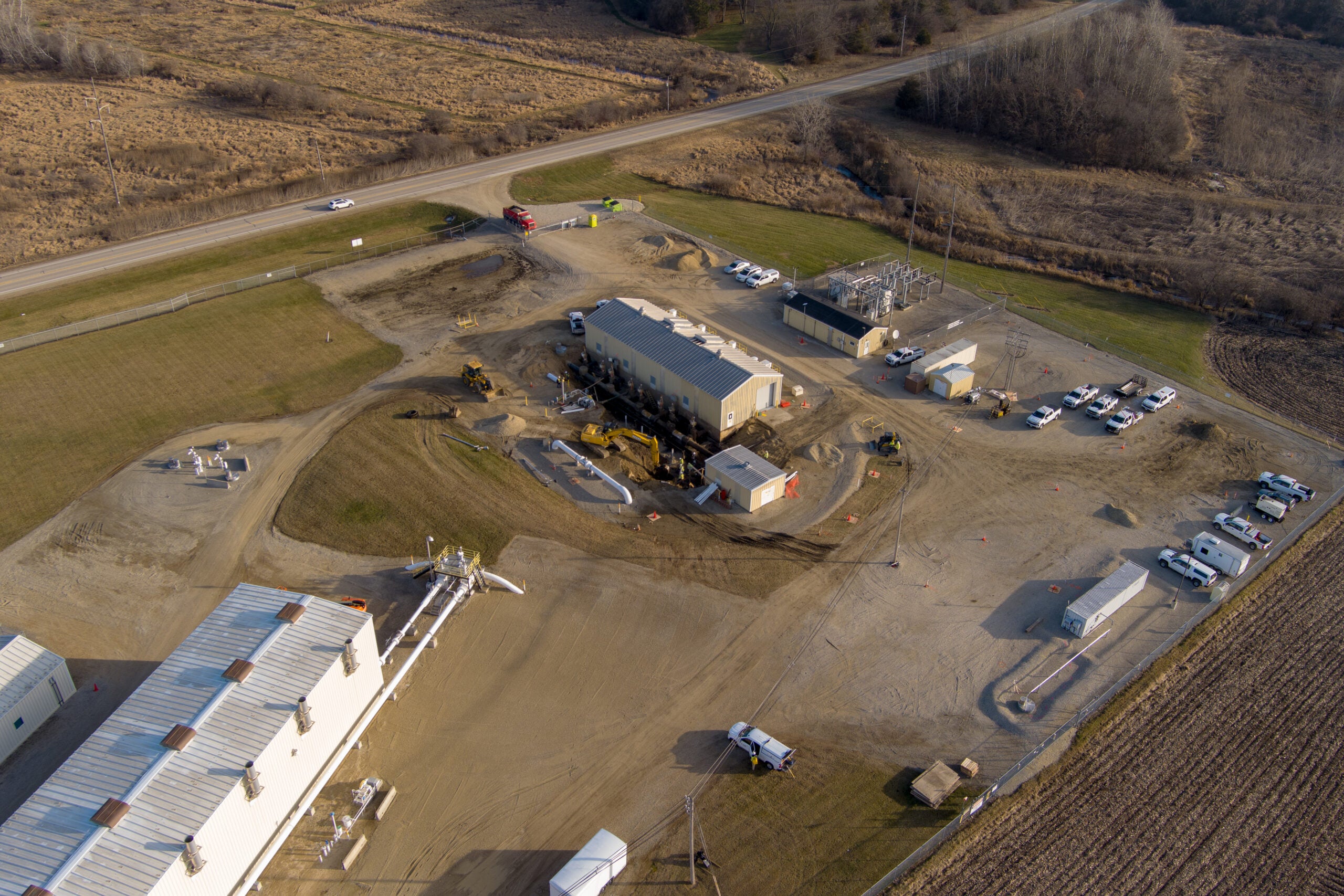The Minnesota Department of Commerce says energy firm Enbridge does not have adequate insurance to protect the public from damages related to crude oil spills. Some critics, including one Wisconsin environmental group, argue that puts taxpayers on the hook to pay for cleanup of any accidents on the company’s pipelines.
The Minnesota Department of Commerce is reviewing Enbridge’s policies to make sure the company is meeting conditions for building its $2.9 billion Line 3 replacement project that runs through Minnesota to the company’s terminal in Superior.
In an Aug. 31 supplemental filing to the Minnesota Public Utilities Commission, the department concluded “the policies do not cover damages from crude oil spills to any significant degree, if at all.“
News with a little more humanity
WPR’s “Wisconsin Today” newsletter keeps you connected to the state you love without feeling overwhelmed. No paywall. No agenda. No corporate filter.
The agency said Enbridge’s insurance includes significant exclusions related to damages caused by crude oil spills. The Minnesota Public Utilities Commission awarded a certificate of need for the Line 3 replacement project as long as the company meets modifications and conditions requested by the commission, which includes insurance. The department recommended the agency not approve the insurance conditions given their findings.
“These kinds of policies, which carry at the top line a blanket exception and exclusion for all pollution damages, are not the kind of policy that we can rely upon to protect the people and taxpayers of Wisconsin for whom these pipelines are all risk and no reward,” said Peter Anderson with climate action group 350 Madison.
The company’s coverage sparked legal challenges in Dane County after the county’s zoning committee tried to impose special insurance requirements to build a pump station as part of Enbridge’s Line 61 expansion. In response, state lawmakers passed a provision in the 2015-17 budget to prevent counties from imposing special insurance requirements on interstate pipeline operators if they already had comprehensive general liability insurance. However, an appeals court ruled earlier this year that the company failed to show it had such insurance to trigger the exemption under state law. Enbridge is petitioning the Wisconsin Supreme Court to review the lower courts’ findings.
Enbridge spokeswoman Jennifer Smith said in a statement that the company has $940 million in general liability insurance that would cover any sudden and accidental spills.
“As an interstate pipeline operator regulated by the U.S. Department of Transportation, Enbridge is responsible for clean-up in the unlikely event of a release anywhere along our pipeline system. It is the substantial financial strength of this company, combined with our duty to respond and remedy any incident that may occur that will ensure communities along our system have the protection they need,” the statement reads. “We will do this not only because it’s the law, but more importantly, because it’s the right thing to do. This commitment and the financial ability to respond has been demonstrated in the past, including with the clean-up and remediation of the spill in Marshall, Michigan.”
Dane County had pursued special insurance upon the recommendations of an independent consultant, which were due in part to Enbridge’s legal battle with an insurer refusing to pay cleanup costs from the 2010 Kalamazoo River spill in Marshall, Michigan.
Anderson argued the company may not be as financially sound in the future as Enbridge is now.
“If the fossil fuel industry starts going bankrupt and the oil sector, they will not have the money even if they voluntarily wanted to clean up the mess that they cause in these kinds of major accidents,” he said.
Anderson also called for transparency on Enbridge’s insurance policies, noting information about its coverage had been heavily redacted. Enbridge designated portions of its coverage as trade secrets in its response to the Minnesota agency. If released, the company argued it would be “detrimental” to the company, provide information to competitors and negatively impact future negotiations or claims.
The Minnesota Public Utilities Commission is set to take up modifications to Enbridge’s certificate of need at its meeting Tuesday, Sept. 11.
Wisconsin Public Radio, © Copyright 2025, Board of Regents of the University of Wisconsin System and Wisconsin Educational Communications Board.





